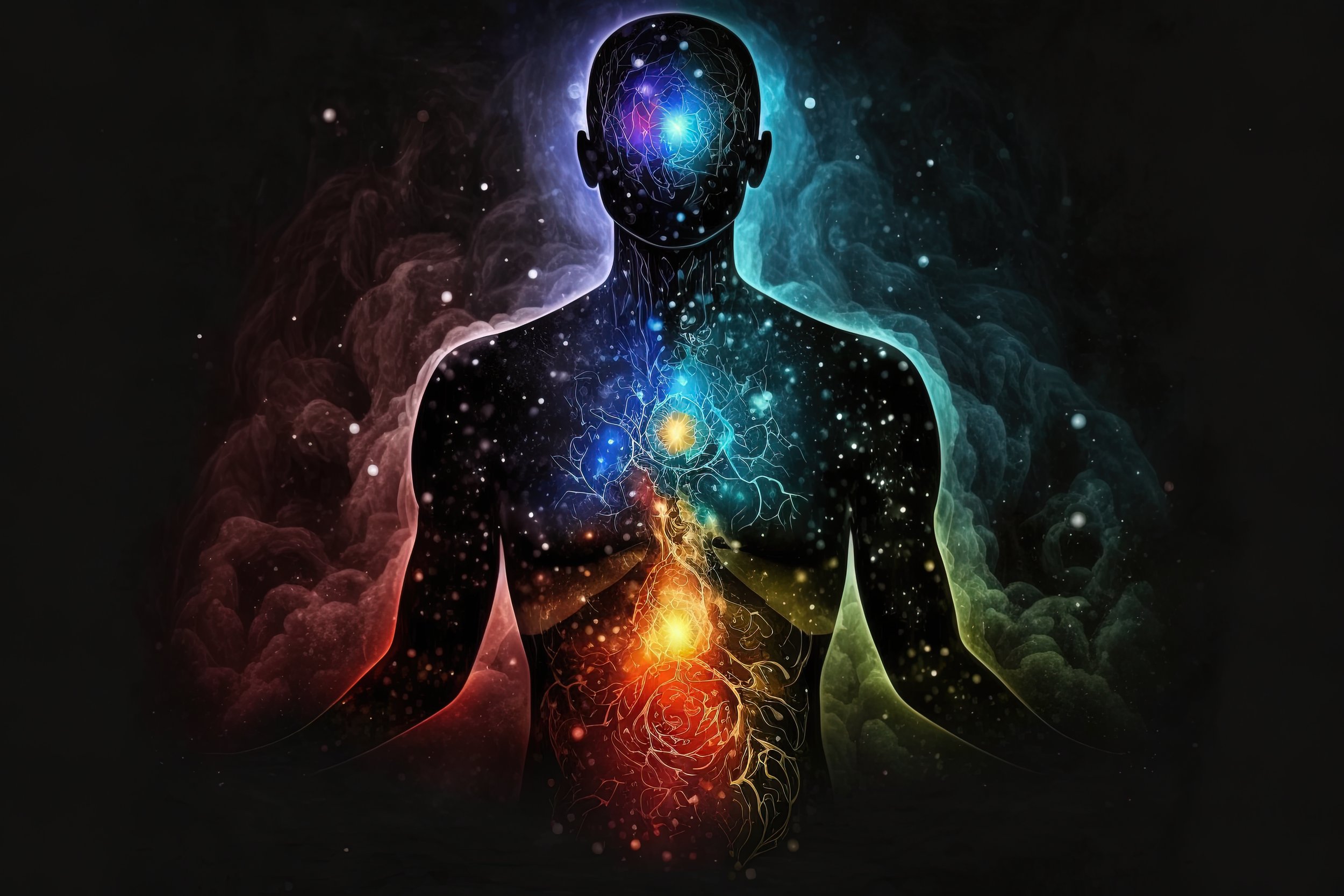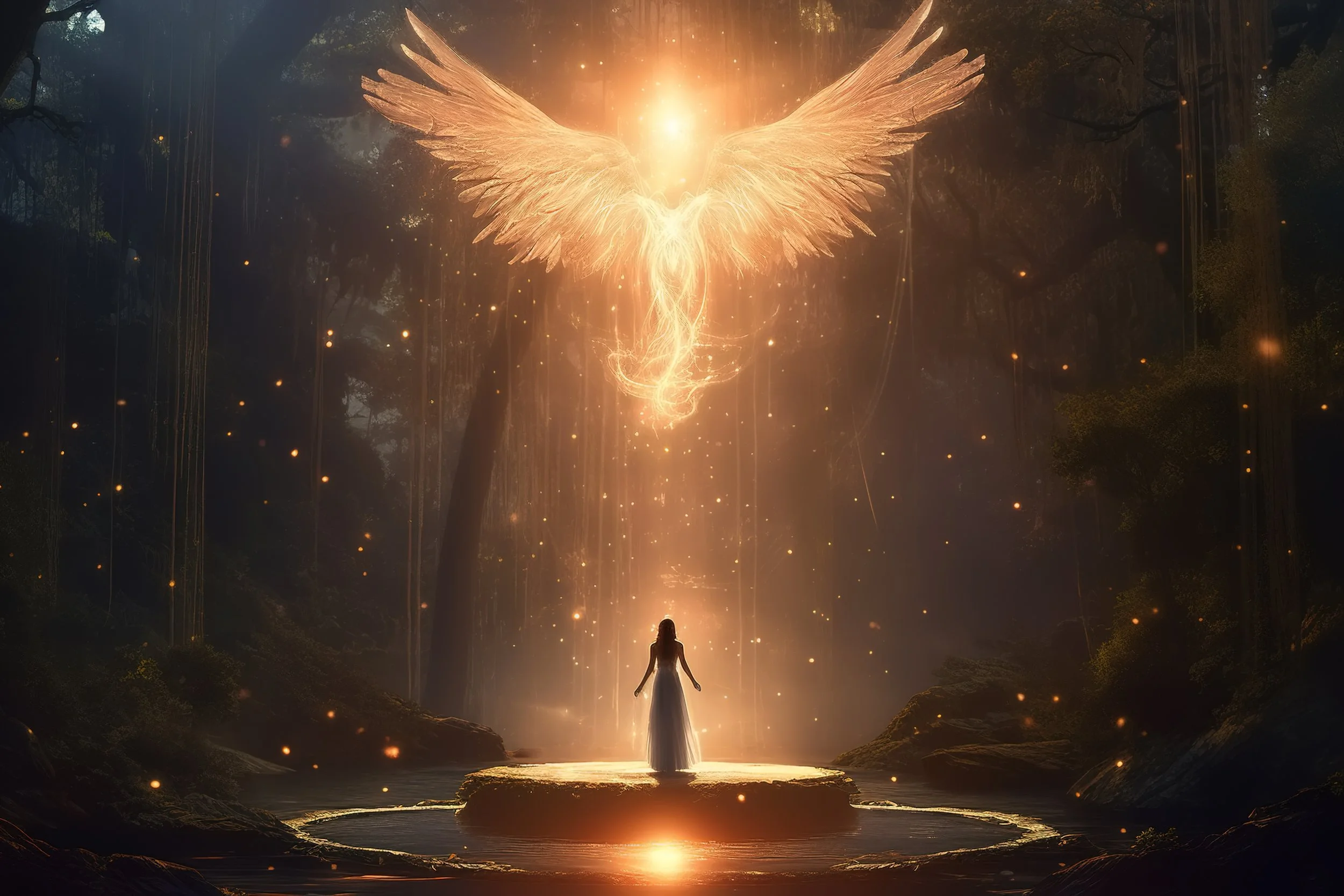Finding Your Person and Knowing Yourself
Introduction
In the journey of life, finding your person—the one who complements your soul—can be one of the most profound experiences. However, to recognize this special someone, it's essential to first understand yourself deeply. Your emotional responses to people, situations, and experiences serve as powerful indicators of your true needs and desires in a relationship. This blog will explore how different emotional reactions to a partner can guide you in finding your person and understanding what you truly want in a relationship.
Understanding Yourself Before Finding Your Person
Before embarking on the quest to find your person, it's crucial to cultivate self-awareness. Knowing yourself—your values, desires, and emotional triggers—provides a solid foundation for building meaningful relationships. When you're in tune with your own needs, you're better equipped to recognize a partner who truly complements you.
Self-awareness can be developed through practices such as journaling, meditation, and introspective conversations. By reflecting on past relationships, you can identify patterns and preferences that will guide you in your future connections. Understanding what you want from a relationship ensures that you are not swayed by superficial attractions or societal expectations but are instead guided by your true self.
Identifying Emotional Responses: What Do They Mean?
Our emotions are powerful indicators of how well a person aligns with our needs and desires. When you're with someone, pay close attention to how they make you feel. Do they inspire feelings of peace and calm, or do they evoke intense emotions? Understanding these responses can help you determine if a relationship is right for you.
The Intense and Challenging Connection
An intense and challenging connection often feels electrifying and dynamic. This type of relationship can push you to grow in unexpected ways, as it frequently challenges your beliefs, behaviors, and comfort zones. While the intensity can be exhilarating, it can also be exhausting if not balanced with mutual respect and understanding.
This type of connection can be beneficial if you're seeking growth and change. However, it's important to recognize the difference between healthy challenges and toxic patterns. If the relationship constantly drains you or makes you feel insecure, it might not be the right fit. The key is to determine whether the challenges you face together are helping you grow or if they're creating unnecessary stress.
The Easy and Effortless Relationship
An easy and effortless relationship is characterized by a natural flow and a sense of comfort. When you're with this person, everything seems to click effortlessly, and conflicts are resolved with minimal friction. This type of relationship can feel refreshing and nurturing, providing a safe space to be yourself without fear of judgment.
While some might mistake ease for a lack of passion, an effortless relationship can be deeply fulfilling. The absence of drama allows you to focus on building a strong foundation of trust and mutual respect. If you find yourself in a relationship where things just work, it's a sign that you may have found a truly compatible partner.
The Peaceful and Calm Relationship
A peaceful and calm relationship offers emotional stability and tranquility. In this type of relationship, you feel grounded and secure, knowing that your partner is a reliable source of support. The calmness in the relationship allows both partners to handle life's ups and downs with grace and composure.
This kind of relationship is ideal for those who value emotional stability and prefer a drama-free partnership. The peace you feel with this person is a sign that they understand and respect your emotional needs. A calm relationship fosters an environment where both partners can thrive without the constant pressure of conflict or emotional turmoil.
The Inspired and Motivated Partnership
An inspired and motivated partnership is one where both individuals push each other to be the best versions of themselves. This type of relationship is filled with encouragement, ambition, and a shared drive to achieve personal and mutual goals. When you're with someone who inspires you, they help you see possibilities beyond your current circumstances, motivating you to grow and evolve.
However, it's important to balance ambition with support. While it's great to be with someone who challenges you to reach new heights, the relationship should also provide a sense of security and understanding. If the drive for success becomes overwhelming or one-sided, it can lead to burnout. A healthy inspired partnership is one where both partners feel uplifted and supported in their endeavors.
The Safe and Understood Relationship
Feeling safe and understood in a relationship is fundamental to emotional well-being. In a safe and understood relationship, you feel free to express your true self without fear of judgment or rejection. Your partner not only listens but also empathizes with your experiences, making you feel valued and appreciated.
Safety in a relationship goes beyond physical security—it encompasses emotional and psychological safety as well. When you're with someone who makes you feel understood, you can navigate life's challenges together with confidence, knowing that your partner is always in your corner. This type of relationship fosters deep trust and a strong emotional bond.
How to Navigate Mixed Emotional Responses
It's common to experience a range of emotions with a partner, especially in the early stages of a relationship. You might feel inspired one moment and challenged the next. Navigating these mixed emotional responses requires self-awareness and open communication. It's important to reflect on how each emotion affects you and to discuss your feelings with your partner.
When facing mixed emotions, consider what each response reveals about your needs. Are you feeling challenged because you're growing, or are you feeling overwhelmed because your boundaries are being pushed? Open conversations about these emotions can help you and your partner better understand each other and find a balance that works for both of you.
The Role of Compatibility in Relationships
Compatibility is a key factor in determining the success of any relationship. It goes beyond shared interests or hobbies, touching on deeper aspects like values, life goals, and emotional needs. When you and your partner are compatible, there's a natural alignment that makes the relationship feel more harmonious and fulfilling.
Compatibility influences how you respond emotionally to your partner. For instance, if you both value communication and honesty, you're more likely to feel understood and safe with each other. On the other hand, if your core values clash, it can lead to persistent tension and conflict. Assessing long-term compatibility involves honest conversations about your expectations, desires, and deal-breakers. A strong foundation of compatibility allows for a healthier and more resilient relationship.
Knowing When You've Found "Your Person"
Finding "your person" is often accompanied by a deep sense of certainty and peace. You feel a unique connection that transcends superficial attractions or infatuation. This person not only understands you but also accepts and loves you for who you are. They make you feel seen, heard, and valued.
Signs that you've found your person include a consistent sense of security, a natural ease in communication, and mutual respect. You might also notice that challenges are faced together rather than as adversaries. Your intuition often plays a significant role in recognizing this connection—there's a gut feeling that tells you this is someone you can trust and build a future with. When these elements align, it may be time to consider a deeper commitment.
Challenges in Finding Your Person
The journey to finding your person can be filled with challenges and uncertainties. Many people encounter obstacles such as past traumas, fear of vulnerability, or societal pressures that complicate their search. One of the most significant challenges is the influence of unresolved childhood wounds and traumas. If you haven't fully understood or healed from these experiences, you might subconsciously seek out relationships that mirror what is familiar to you from childhood—even if those patterns are unhealthy.
We are often unaware that our definition of love and connection can be shaped by our early experiences, and this can become a barrier to finding a truly fulfilling relationship. For instance, if you grew up in an environment where love was conditional or inconsistent, you might unconsciously chase partners who replicate these dynamics, believing that this is what love feels like. In reality, this pursuit may be more about trying to fill the void left by what your parents couldn't give you rather than what your soul truly desires.
Understanding and healing from these childhood patterns is crucial to breaking free from them. Without this awareness, you may continue to repeat the same cycles, mistaking familiarity for love. By doing the inner work to understand your wounds, you can redefine what love means for you and open yourself up to healthier, more authentic connections.
Practical Steps to Deepen Your Relationship
To create a truly fulfilling and lasting relationship, it's essential to continuously explore your own inner world. This involves daily self-reflection on your thoughts, emotions, curiosities, and passions. When you actively engage in understanding yourself, you prevent the common trap of falling into a state of lack or victimhood, where you might begin to believe that your partner is responsible for your happiness or fulfillment.
Taking full ownership of your inner world is crucial. When you neglect your own growth and self-exploration, it's easy to start blaming your partner for unmet needs or dissatisfaction. However, true empowerment comes from recognizing that your emotional and mental well-being is your responsibility, not your partner's. This shift in perspective allows the relationship to become an incredible mirror, reflecting back to you areas of growth, healing, and deeper understanding.
This approach is particularly important as the old model of partnership—where one person is expected to fulfill all of the other’s needs—is gradually becoming outdated. Modern, conscious relationships thrive on mutual self-awareness and personal growth. By embracing your own journey and allowing your partner to do the same, you create a dynamic that is both supportive and expansive. The relationship becomes a space where both individuals can grow individually and together, free from the weight of unrealistic expectations.
To deepen your relationship, focus on nurturing your own passions, staying curious about life, and regularly engaging in self-reflection. When both partners take responsibility for their own happiness and growth, the relationship can thrive in a more authentic and fulfilling way. This mindset naturally ties into the FAQs and conclusion by emphasizing that true fulfillment in a relationship begins with yourself.
FAQs
What should I do if I feel both intense and calm with my partner?
It’s common to experience a mix of emotions in a relationship. Reflect on what each feeling signifies for you and communicate openly with your partner about your experiences. Remember, these emotions can also be a mirror reflecting areas for personal growth.
Can a challenging relationship still be healthy?
Yes, a challenging relationship can be healthy if it encourages growth and is balanced with mutual respect and support. However, if the challenges create consistent stress or insecurity, it may be worth re-evaluating the relationship. Take full ownership of how these challenges affect you and consider if they are a reflection of unaddressed personal issues.
How do I know if I’m compromising too much?
If you find that your needs, values, or happiness are consistently sacrificed, it may be a sign that you're compromising too much. Healthy relationships require balance and mutual respect. Explore your own boundaries and ensure you’re not blaming your partner for feelings that are within your control.
Is it possible to find someone who makes me feel all these emotions?
Yes, it’s possible to find a partner who evokes a range of positive emotions. The key is to find someone who balances these feelings in a way that aligns with your overall well-being. This also requires you to be in tune with your own emotional landscape.
What if I never find someone who evokes these feelings?
If you haven’t found someone who evokes these emotions yet, don’t lose hope. Focus on self-growth and remain open to possibilities. Remember, the journey to finding your person often starts with deepening your understanding of yourself.
Conclusion
Finding your person is a deeply personal journey that requires self-awareness, patience, and a willingness to grow. By understanding your emotional responses and what they signify, you can better navigate the complexities of relationships. Whether you seek a partner who challenges you, calms you, or inspires you, the key is to find someone who aligns with your true self and makes you feel valued and understood.
It's also crucial to be honest with yourself about what you are truly asking for in a relationship. This journey isn’t about fitting into someone else’s expectations or conforming to societal norms. Instead, it’s about understanding your own needs and desires and seeking a partner who complements them. Being true to yourself ensures that you don’t compromise on your happiness or well-being just to fit into someone else’s box.
Moreover, continuously exploring your own inner world is essential for maintaining a healthy relationship. By taking full ownership of your emotions, passions, and personal growth, you prevent the trap of expecting your partner to fulfill all your needs. This self-awareness and responsibility are what allow modern partnerships to thrive, creating a dynamic where both individuals grow together in a supportive and expansive way.
Remember, the most important relationship you have is the one with yourself—nurture it, and you’ll be well on your way to finding the person who truly complements your soul.







